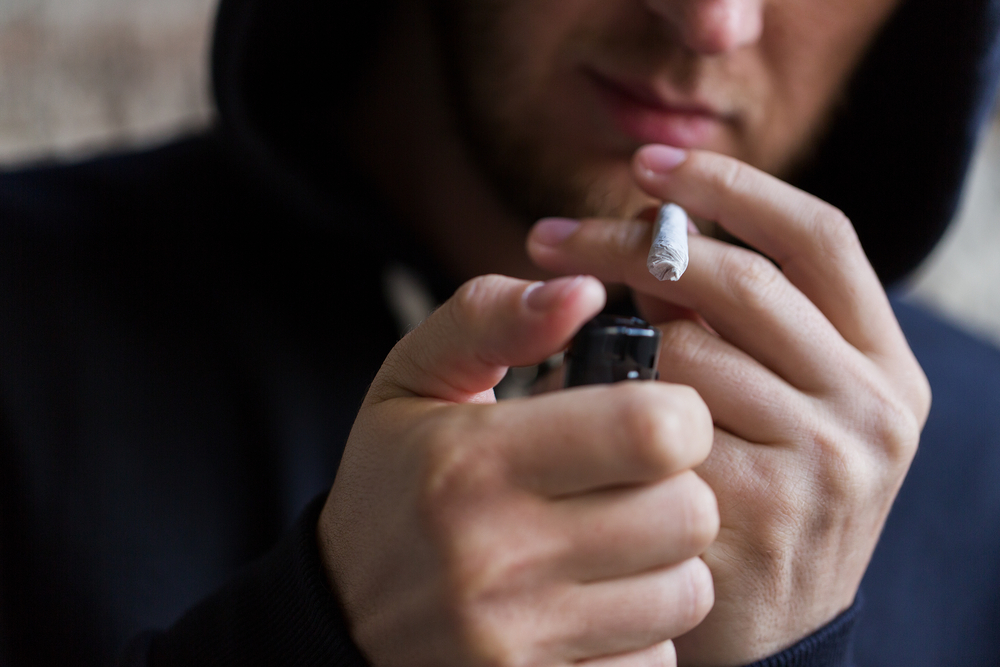Cannabis
Is It Possible To Have A Weed Addiction?
Weed addiction is a touchy subject.
To date, there has never been a death as a consequence of a weed overdose, nor has there been anybody who has become “physically” addicted to weed. That is to say that nobody has stopped smoking weed and has had their body suffer physical symptoms of marijuana withdrawal that urge them to continue smoking again.
But does that mean a weed addiction isn’t real? Well, a weed addiction can come in more forms than one.
You can’t be just physically addicted, just mentally addicted, or just emotionally addicted to a thing, whatever that thing may be.
Whether we’re talking about a substance, a type of behavior, or a mental state, chances are there are multiple angles to it.
Addictions are generated by an arguably vast array of causes, summarized into two major categories; cultural & societal environments (which usually generate mental predispositions), and physical predispositions to specific substances.
According to this study, the definition of addictive behaviors should cross several disciplines, including, behavioral neuroscience, epidemiology, genetics, molecular biology, pharmacology, psychology, psychiatry, and sociology.
So can you actually get addicted to weed?
The answer might be more complicated than you think. Here’s what the experts have to say.
Physical Addiction vs. Mental Addiction
According to this study on behavioral addiction vs. substance addiction, experts believe that all entities capable of stimulating a person can be addictive; and whenever a habit changes into an obligation, it can be considered as an addiction. Researchers also believe that there are a number of similarities as well as some differences between drug addiction and behavioral addiction diagnostic symptoms.
For example, exercising (a behavior) can be considered an addiction if it becomes an obligation, according to the study cited above.
However, this sort of addiction might be considered mostly mental in essence because there isn’t a foreign substance that’s actually entering the body and altering its chemical composition, making it crave the substance more and more.
On the other hand, some might argue that physical activity triggers the release of serotonin, and because of this, it might be classified as an addiction to the hormone itself.
There’s a very thin line between mental and physical addiction. Ultimately, and regardless of the expert you consult, there will always be different perspectives on what an addiction may entail.
Can you get Addicted to Weed?

With the above selection on addiction, we can be sure to say that while a “physical” weed addiction is impossible, a mental one might just be plausible.
According to this study, a substantial body of clinical and laboratory animal research has emerged supporting the assertion that chronic exposure to cannabinoids produces physical dependence and may contribute to drug maintenance in cannabis-dependent individuals.
This study is specially focused on the effects of THC on the body and brain. In this case study we find cannabis addiction defined as cannabis use disorder (CUD) and consequently discover that
… the three-stage framework of addiction applies to CUD in a manner similar to other drugs of abuse …
Basing ourselves off of the definitions for addictions visited above; yes, marijuana is addictive because it can become necessary (a.k.a. an obligation). But basing ourselves off of our inexpert and perhaps, ignore-worthy opinion; who really cares?
The outcome of marijuana use is not necessarily a bad one. However, I’m not stating that in the future people who abuse the consumption of marijuana cannot face serious and perhaps detrimental results.
The point we’re trying to make is that use and addiction are two different things.
Using marijuana is not a fast track for addiction (although some experts might differ with my opinion), it’s just behavior and substance consumption, marijuana itself can be addictive and can be detrimental, but it doesn’t have to be.
Just like yoga and coffee.
Signs of Weed Addiction

Those who consume marijuana and other substances will most likely know when it becomes an addiction if they’ve read the above studies in a detailed manner.
For a person that doesn’t have time to read the boring spiel of technical terms listed above, let us step right into a summary.
Being addicted to marijuana, or any substance or behavior, means that it has become necessary for you to engage it in relationship to some other behavior.
Some signs of marijuana addiction may include; having to use marijuana at certain times of the day, in the evening or top of the morning, or perhaps it is necessary to consume it to spark up an appetite.
We’re surely missing a ton of other occasions when it’s evident that marijuana use and consumption becomes an addiction.
Perhaps the best way to notice is to have your eyes open for any and every time in the day when you consistently feel the need to consume marijuana. If that behavior feeling repeats itself consistently, then yes, you’re most likely addicted to weed.
How to Avoid a Weed Addiction
Like any addiction, marijuana addiction can be avoided by not consuming cannabis-related products at all. But this is not the answer we want to hear, is it?
The thing is, what addiction means to you will depend on the kind of person you are, your beliefs, your social environment, and it even becomes dependent on the body composition you hold.
So it’s physically impossible for us to define the best way to avoid marijuana addiction for every single person reading this article. The only true and 100% effective method is to avoid marijuana consumption altogether. I know, sad.
However:
Because of the difference in body compositions and social environments every person is subject to, there is space for people who are more likely to be able to control substance abuse than others. Regardless of whether the reason for a higher tolerance is physical or mental.
Tolerance Breaks

Another potential way to avoid marijuana addiction is taking tolerance breaks. This is probably a term you’re already familiar with and quite easy to define.
A tolerance break is just a certain period of time that you lay off cannabis and allow for your body to build up the tolerance it originally had before beginning to consume marijuana.
Tolerance breaks usually take 1-2 months; in general, this is how much time it would take for marijuana to exit the body completely.
This period of time will not only allow you to moderate marijuana consumption but is also likely to help you feel high again if you’ve reached a tolerance level where getting high has become semi-impossible.
Can You Get a Weed Addiction?
Addiction can be split into two major groups; physical and mental and is ultimately defined by the specific person’s physical composition and the environment he/she is and has been exposed to.
In short, weed can be addictive, but how to define weed addiction will be heavily linked to each person and their particularities.
So, get to know yourself first, find out what does it for you and where your cannabis tolerance lies at. With that done, you’ll be able to get your personal goals in line and build a healthy relationship with cannabis!

